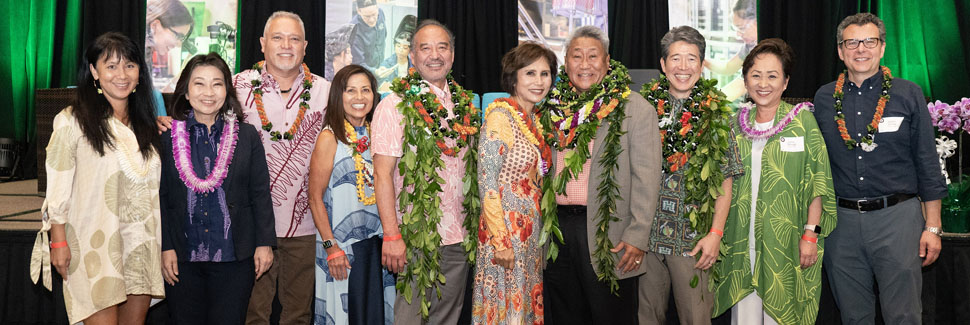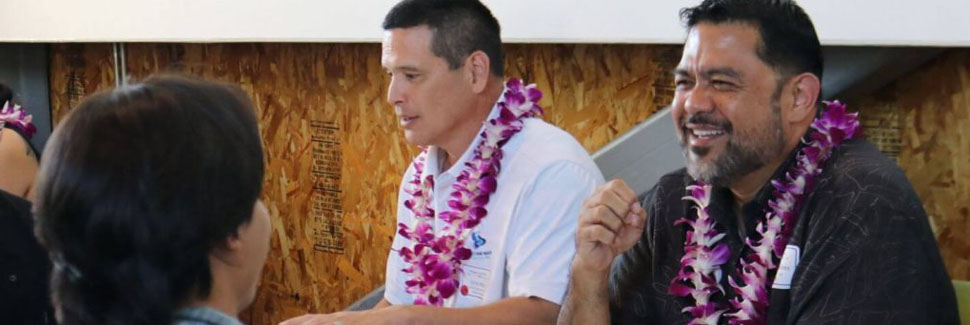Over 900 guests enjoyed an evening showcasing student innovations and community member achievements at the…
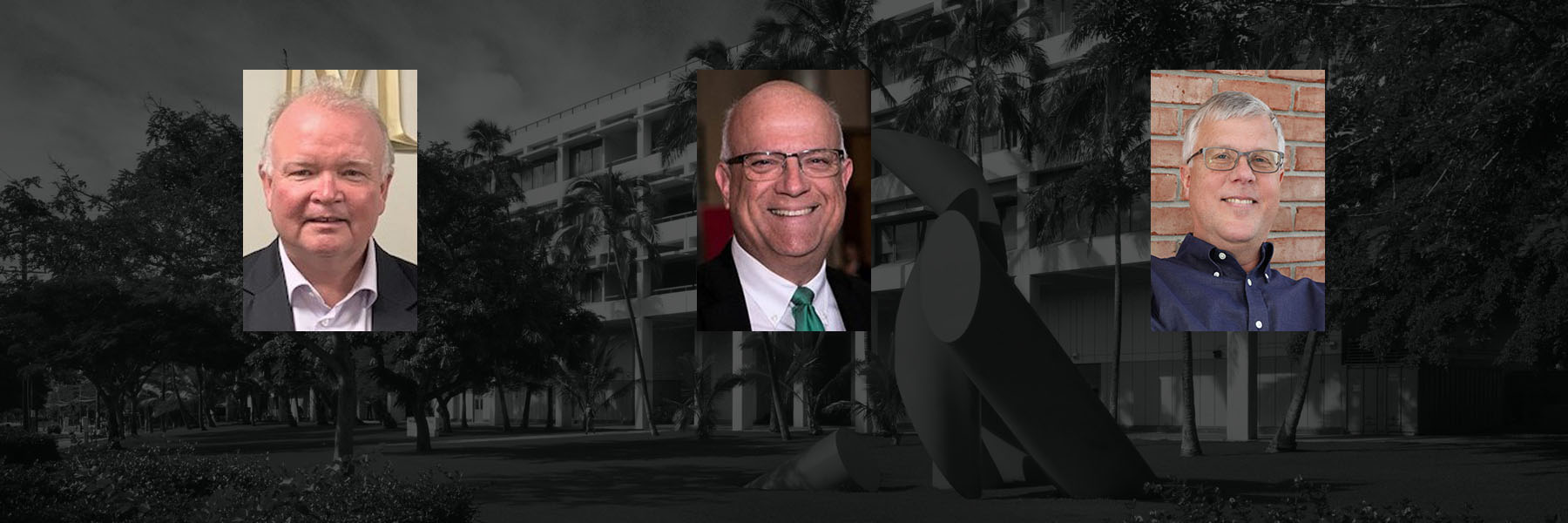
Finalists for Associate Dean position announced
David Grewell | March 30-31
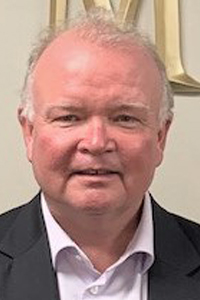
Professor David Grewell received his BS, MS, and Ph.D. in Welding Engineering from The Ohio State University. He holds 17 patents, has authored numerous publications (including three books), and has been given numerous honors and awards.
He is the chair of the Department of Industrial and Manufacturing Engineering at North Dakota State University. Prior to his move to NDSU, he was a Professor at Iowa State University in the Department of Agricultural and Biosystems Engineering for 14 years. Before returning to academia, he worked at Emerson Electric for nearly 14 years.
Dr. Grewell is the Director of the NSF Center for Bioplastics and Biocomposites and of the Great Plains Region NSF I-Corps Hub, the Chair of the International Institute of Welding Commission IXV, a Board Member of the Ultrasonic Industry Association, and a Fellow of the Society of Plastics Engineers and of the National Academy of Inventors. He also holds a position at the University of Erlangen in Germany.
William Schonberg | April 3-4
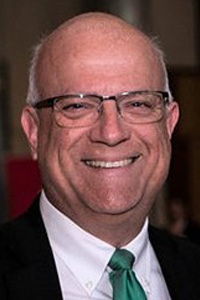 Dr. William P. Schonberg, P.E., is a Professor in the Civil, Architectural, and Environmental Engineering Department at the Missouri University of Science and Technology. Dr. Schonberg is a registered professional engineer in the States of Missouri and Alabama, and has over 35 years teaching and research experience in the areas of shock physics, spacecraft protection, hyper-velocity impact, and penetration mechanics. He received his BSCE from Princeton University in 1981 (cum laude), and his MS and PhD degrees from Northwestern University in 1983 and 1986, respectively.
Dr. William P. Schonberg, P.E., is a Professor in the Civil, Architectural, and Environmental Engineering Department at the Missouri University of Science and Technology. Dr. Schonberg is a registered professional engineer in the States of Missouri and Alabama, and has over 35 years teaching and research experience in the areas of shock physics, spacecraft protection, hyper-velocity impact, and penetration mechanics. He received his BSCE from Princeton University in 1981 (cum laude), and his MS and PhD degrees from Northwestern University in 1983 and 1986, respectively.
The results of Dr. Schonberg’s research have been applied to a wide variety of engineering problems, including the development of orbital debris protection systems for spacecraft in low earth orbit, in-situ resource utilization for lunar habitats, kinetic energy weapons, the collapse of buildings under explosive loads, insensitive munitions, and aging aircraft. A significant part of his research is dedicated to improving the safety of long-duration spacecraft and of personnel involved in space flight and operations. Dr. Schonberg’s international reputation has been earned primarily through the publication of refereed journal articles. To date, he has published 90+ papers in refereed journals on these topics, and has presented the results of his scholarly endeavors at a broad spectrum of international scientific and professional meetings, including several invited papers and presentations. To date Dr. Schonberg has received 50+ contract and grants from a variety of federal, state, and private funding agencies, including NASA, NSF, AFOSR, ARO, ARL, USDOT, and Sandia National Laboratories.
At Missouri S&T, Dr. Schonberg continues to teach a variety of graduate and undergraduate courses in civil, mechanical, and aerospace engineering. As an academic leader, Dr. Schonberg has been department chair at two different universities and served one year as Interim Dean of the School of Engineering at Missouri S&T. In 2007 Dr. Schonberg was honored to receive the Manuel T. Pacheco Award from the President’s Academic Leadership Institute (PALI). This award honors an academic administrator who exemplifies outstanding academic leadership at one of the four institutions within the University of Missouri System. In 2014 he was a Visiting Professor at the University College of the Cayman Islands where he taught Engineering Ethics for that university’s new engineering program.
Recognition for Dr. Schonberg’s scholarly and technical accomplishments has come through numerous honors and awards bestowed upon him by his peers. In 1995 Dr. Schonberg received the AIAA’s Lawrence Sperry Award for his work on the design of spacecraft protection systems. In 2003 and 2005 he was promoted to the member rank of Fellow of ASCE and ASME, respectively. He was presented with a Distinguished Scientist Award by the Hypervelocity Impact Society in 2015 in recognition of his many scholarly accomplishments as well as his dedication to the Society, its programs, and its student members. Since 2019, Dr. Schonberg has been recognized in the Stanford/Elsevier Top 2% of World Scientists Rankings for Single Year and Career contributions in his technical specialty area.
Dr. Schonberg continues to be invited to serve on national technical committees by various federal agencies and organizations, including NASA, the U.S. Air Force, and the National Research Council of the National Academy of Engineering. In 2007 Dr. Schonberg received a Friedrich Wilhelm Bessel Research Award from the Humboldt Foundation in Germany, and in 2019 Dr. Schonberg was awarded a Fulbright Distinguished Chair in Advanced Science and Technology. Dr. Schonberg has also been a Summer Faculty Fellow at NASA/JPL, Eglin Air Force Base, and the NASA Marshall Space Flight Center. He has been twice honored by the NASA Engineering Safety Center for his outstanding leadership and technical insights in support of NASA’s orbital debris programs.
Steven Durbin | April 10-11
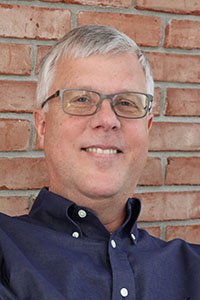 Steve Durbin attended Purdue University, West Lafayette, Indiana, where he received the BSEE, MSE and Ph.D. (Electrical Engineering) degrees. His doctoral research was funded in part by a NASA Graduate Research Fellowship, and focused on numerical modeling of a phenomenon relevant to high-efficiency compound semiconductor solar cells known as “photon recycling.” Following completion of his doctoral degree, he accepted a position at the College of Engineering jointly managed by Florida A&M University and Florida State University, where he was a faculty member at both institutions. During that time, he returned to experimental work, where he studied plasma-assisted pulsed laser deposition (PLD) of difficult-to-synthesize crystalline electronic materials. His research in Florida was funded by NASA, DARPA, the National Science Foundation and industry.
Steve Durbin attended Purdue University, West Lafayette, Indiana, where he received the BSEE, MSE and Ph.D. (Electrical Engineering) degrees. His doctoral research was funded in part by a NASA Graduate Research Fellowship, and focused on numerical modeling of a phenomenon relevant to high-efficiency compound semiconductor solar cells known as “photon recycling.” Following completion of his doctoral degree, he accepted a position at the College of Engineering jointly managed by Florida A&M University and Florida State University, where he was a faculty member at both institutions. During that time, he returned to experimental work, where he studied plasma-assisted pulsed laser deposition (PLD) of difficult-to-synthesize crystalline electronic materials. His research in Florida was funded by NASA, DARPA, the National Science Foundation and industry.
In 2000, he relocated to Christchurch, New Zealand where he joined the University of Canterbury, progressing through academic ranks, continuing his research into novel electronic materials, and expanding into molecular beam epitaxy growth in addition to PLD. His research into two materials in particular, indium nitride and zinc oxide, led to international recognition of his contributions and a number of publications, invited talks, and patent applications. He was a founding principal investigator of the MacDiarmid Institute for Advanced Materials and Nanotechnology, one of the inaugural New Zealand Centers of Research Excellence, which remains vibrant and active two decades later. He was also supported by the Marsden Fund, New Zealand’s most prestigious source of external research funding. He secured funding for seven postdoctoral research associates and five doctoral students during this time.
In 2010 he returned to the US, taking a joint position between the Department of Physics and the Department of Electrical Engineering at the University at Buffalo, part of the State University of New York. He secured funding for and supervised one doctoral student in electrical engineering and two doctoral students in physics before joining Western Michigan University as Professor and Chair of the Department of Electrical and Computer Engineering. In the midst of intensive commercialization activity, he was tapped to serve as Interim Chair of WMU’s Department of Engineering Design, Manufacturing & Management Systems, which is home to three engineering technology degrees, and also to assist with academic labor relations within Academic Affairs.
Steve’s research interests continue to include novel electronic materials, but more recently have expanded to include quantitative metrics for disorder in physical systems—in particular, using disorder to tune physical properties. This work has led to one awarded patent, four utility patent applications, and four provisional patent filings, with several provisional filings in development. He continues to be actively engaged in efforts to commercialize these innovations, having been a member of a 2019 national I-Corps team (Washington, D.C. cohort), and more recently a recipient of a $24,000 grant from the Michigan Economic Development Corporation funded ADVANCE program. His teaching interests include introductory circuits, electronics, and physics, as well as senior design, semiconductor materials and devices, and superconducting devices. He is the co-author of Engineering Circuit Analysis, now in its 10th edition, having joined the effort as the sole active author for the 6th edition. He enjoys incorporating elements of his research and entrepreneurial experiences into the classroom as part of discussions on career opportunities. Steve has also been active in Professional Service throughout his career, including serving as an ABET program evaluator since 2017, and a journal editor-in-chief from 2016-2021.

